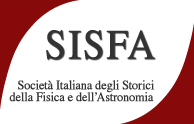Speaker
Description
The development of physics shows its highly theoretical character through the participation of unobservable entities in opposition to the physicalist conception. In this sense, the problem of the unobservables becomes a core issue, opening fierce debates in the philosophy of science. Despite the positions and ideologies, men of science construct unobservable entities from certain indicative manifestations of a possible existent. Under this perspective, in sciences intelligibility must admit the participation of ‘unobservable intelligible’. Space, time, field, potential, etc. are the cornerstones in physical theories. From this point of view, Husserl's phenomenology is presented as a possible philosophical framework to elucidate meanings of foundational theoretical terms in relativistic physics, emphasizing a priori character, its contingent aspect (language) and intersubjectivity of intelligible unobservables. Assuming the consideration of the phenomenon-subject-object trinomial, the action of phenomenological intersubjectivity in the constitution of essences proposed by J. Mastrobisi is illustrated. I consider the constitution of intersubjective essences as a possible case to build a real world and show the theoretical terms (space, time and field). I specifically assume two key theoretical terms in general relativity and cosmology: Matter and Field. I take as a starting point the physical nature of space-time and the use, by physics, of notions of symmetry and invariance, accounting for unobservable or foundational theoretical terms through the pure phenomenological analysis of essences. In reference to the manifestations of an existent (which is illustrated from the intersubjective essences of Mastrobisi) we approach the processual character of the subject and the Reality through the ontological categories Extension-Change in Raphael Neelamkavil. This assumption is brought in as a natural consequence of the need to account for the constitution in the real world of the intersubjective essences (theoretical terms) under the consideration of the Extension-Change ontological categories. In this sense, illustrating the foundational notions in physics (Matter and Field) under the universal physical-ontological categories (Extension-Change) of Neelamkavil facilitated by the intersubjectivity action essence in Mastrobisi contribute to account for Husserl’s phenomenology as a philosophical framework in relativistic physics and cosmology. An analysis of the constitution of intersubjective essences through ontological categories (Extension-Change) in the study of relativistic physics and cosmology (gravitation) through two key conceptions such as Matter and Field makes it possible to account for the importance of the philosophy of physics in elucidating intelligible unobservables or theoretical terms that support physical theories. The intention of the proposal is to address this blind spot of the connection between essences and Reality through the Husserl-Mastrobisi-Neelamkavil triadic.
References
Husserl, E. (2013). Ideas relativas a una fenomenología pura y una filosofía fenomenológica: Introducción general a la fenomenología pura. Libro Primero. (Trad.) Antonio Zirión Quijano. Ciudad de México: UNAM/FCE.
Mastrobisi, J. (2015). Fenomenología e Relativitá: Studi su possibilitá ed essenza nella fisica contemporanéa. Roma: Stalmen.
Neelamkavil, R. (2018). Gravitational Coalescence Paradox and Cosmogenetic Causality in Quantum Astrophysical Cosmology. Berlin: Peter Lang.
Zirión, A. (2017). Breve Diccionario Analítico De Conceptos Husserlianos. Ciudad de México: UNAM.
Weyl, H. (1952). Space, Time and Matter. (Trad.) Henry Brose. New York: Dover.

